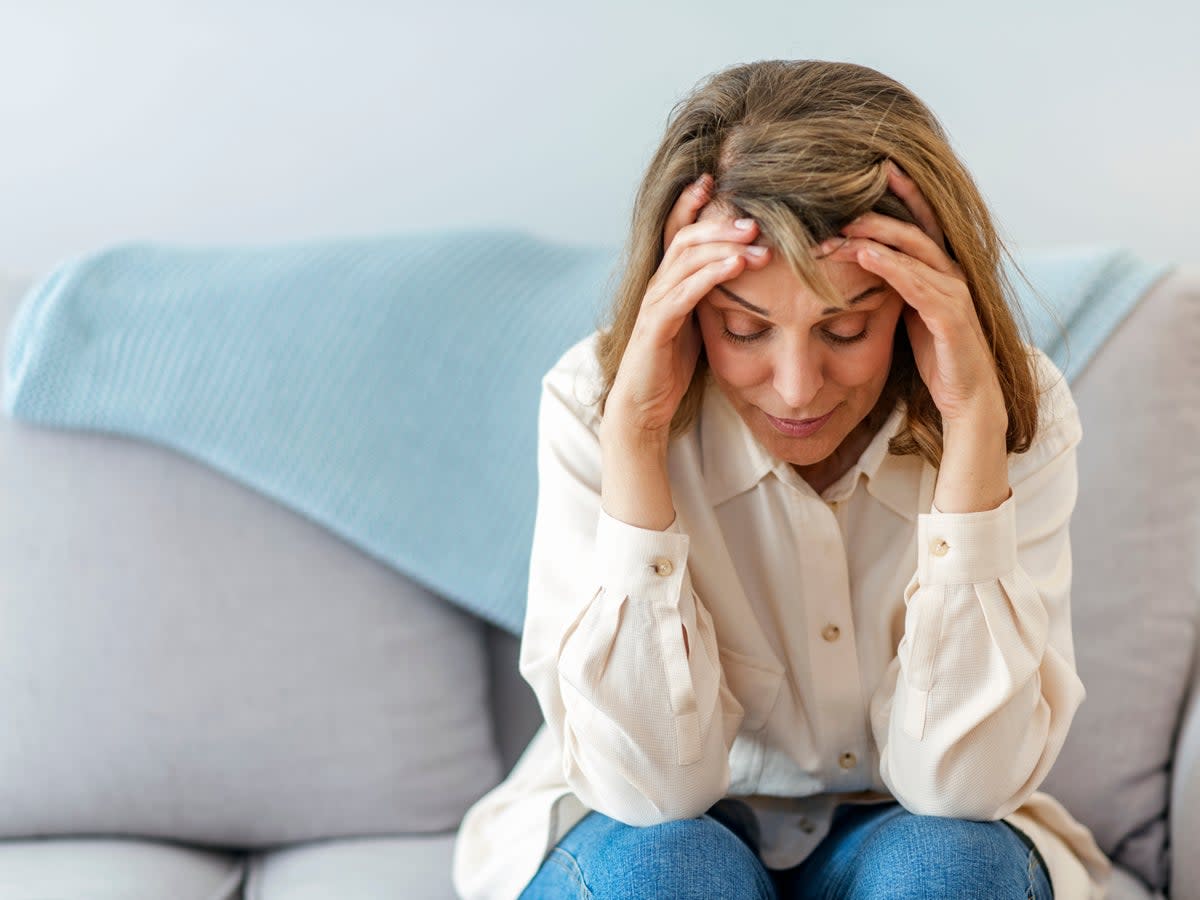Menopause symptoms much more varied than women think, poll finds

Women associate menopause with just five symptoms, despite experts warning there could be dozens more.
Research has found that women recognise hot flushes, night sweats, tiredness, sleep difficulties and irregular periods as part of the process.
But one doctor now claims other ailments such as tinnitus, urinary infections, change in body odour, weak bones and restless legs can all be associated with this time in a woman’s life.
Dr Naomi Potter said increased allergies, heart palpitations and changes in oral health could also be linked.
Her claims came as a poll of some 5,000 menopause-aged women found even those who were at the end of their journey remained relatively clueless about what they had been through.
A common misconception among all women polled was that the menopause runs across many years. But Dr Potter said this transition period was called the perimenopause – and the time when hormones fluctuate can last for years.
The menopause occurs 12 months after a woman’s last period.
Dr Potter said: “I hear of so many myths from women who are unsure about what their body will or is going through – many of whom are in total denial.
“Women believe they can’t experience symptoms in their 40s because they’re not old enough, or their symptoms aren’t menopausal – when in fact if they’re over 45, it’s likely they are.
“And women are just as baffled about help available from medical professionals, believing they can’t be treated if they’re overweight, old, have migraines, have liver disease, high blood pressure and so on.
“The reason why it is so hard to pinpoint the number of symptoms is also because not all are associated with peri- or menopause – people do obviously suffer with other ailments which are totally unrelated.”
Of those women who are going through, or have had their menopause, just 40 per cent visited a GP to get help for their symptoms.
Just under half felt ill-informed about what their body was going through, and 56 per cent admitted to being constantly surprised at what they were experiencing.
Just 1 per cent of women were aware more unusual symptoms like urination frequency or vaginal changes were part of the journey to menopause until they endured them.
Similarly, only 2 per cent knew they would have to put up with the likes of incontinence, skin problems or heart palpations.
And just 3 per cent understood their feelings of dizziness, loss of confidence or loss of joy were directly linked to the change in their hormone levels.
For women who claimed to be pre-perimenopause, one-third did not think it happened to every female.
And four in 10 were unsure whether it could be hereditary in terms of the age it starts, or symptoms suffered.
A further two-thirds had no idea whether the journey to menopause could decrease sex drive, and 74 per cent did not realise it could be linked with weight gain.
A spokesperson for Essity said: “Of course, anybody experiencing symptoms should visit their GP first to ensure a correct diagnosis.”


